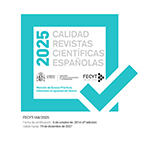Normativas y metodologías participativas entorno al reciclaje inclusivo en la zona Andina
Resumen
La participación en el medio andino y la fuerte influencia de los movimientos sociales ha generado la conformación de leyes reguladoras en torno al ambiente, como un proceso de institucionalización. Es entorno a esta regulación que actividades de interés social y ecológico como el reciclaje, en las que tradicionalmente se trabajaba de forma no organizada, pasan a adoptar formas de trabajo incluyentes, metodologías que tienen en cuenta a diferentes actores como las instituciones, ciudadanía y organizaciones.
Así como se han generado normativas; Artículos en la constitución, puntos en el plan del Buen Vivir, etc., se han desarrollado procesos participativos que han llevado, en muchas ciudades, a que se trabaje en un reciclaje inclusivo, esto es, donde las personas que reciclan sean reconocidas como actores protagónicos en la sociedad.
Este será, basándonos en el trabajo realizado en nuestro caso de estudio, el tema de este artículo: identificar las normativas y metodologías que llevaron, en los procesos de reciclaje, a levantar la participación de la Población.
Descargas
Descarga artículo
Licencia
La revista Política y Sociedad, para fomentar el intercambio global del conocimiento, facilita el acceso sin restricciones a sus contenidos desde el momento de su publicación en la presente edición electrónica, y por eso es una revista de acceso abierto. Los originales publicados en esta revista son propiedad de la Universidad Complutense de Madrid y es obligatorio citar su procedencia en cualquier reproducción total o parcial. Todos los contenidos se distribuyen bajo una licencia de uso y distribución Creative Commons Reconocimiento 4.0 (CC BY 4.0). Esta circunstancia ha de hacerse constar expresamente de esta forma cuando sea necesario. Puede consultar la versión informativa y el texto legal de la licencia.











